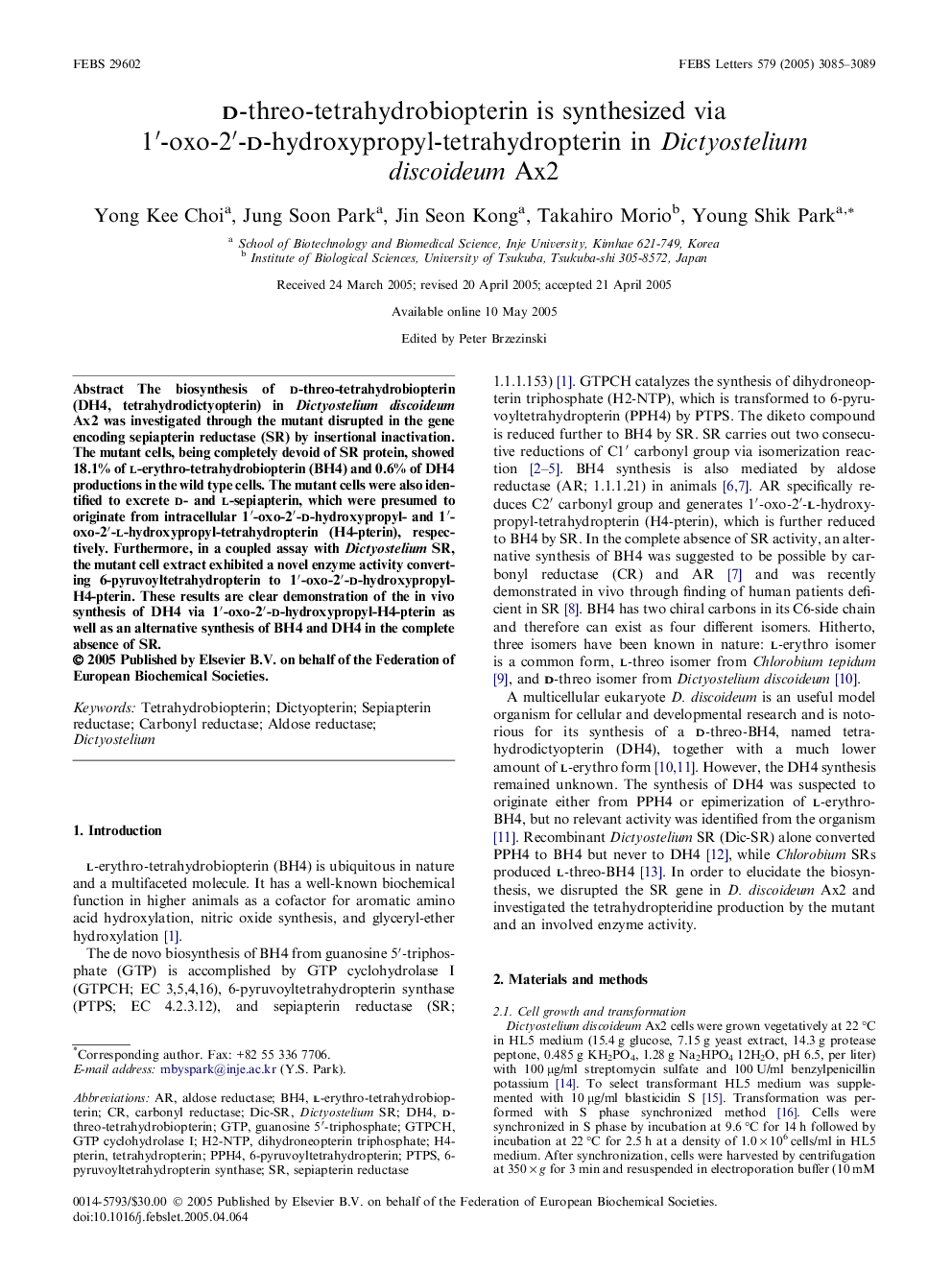| Article ID | Journal | Published Year | Pages | File Type |
|---|---|---|---|---|
| 2053224 | FEBS Letters | 2005 | 5 Pages |
The biosynthesis of d-threo-tetrahydrobiopterin (DH4, tetrahydrodictyopterin) in Dictyostelium discoideum Ax2 was investigated through the mutant disrupted in the gene encoding sepiapterin reductase (SR) by insertional inactivation. The mutant cells, being completely devoid of SR protein, showed 18.1% of l-erythro-tetrahydrobiopterin (BH4) and 0.6% of DH4 productions in the wild type cells. The mutant cells were also identified to excrete d- and l-sepiapterin, which were presumed to originate from intracellular 1′-oxo-2′-d-hydroxypropyl- and 1′-oxo-2′-l-hydroxypropyl-tetrahydropterin (H4-pterin), respectively. Furthermore, in a coupled assay with Dictyostelium SR, the mutant cell extract exhibited a novel enzyme activity converting 6-pyruvoyltetrahydropterin to 1′-oxo-2′-d-hydroxypropyl-H4-pterin. These results are clear demonstration of the in vivo synthesis of DH4 via 1′-oxo-2′-d-hydroxypropyl-H4-pterin as well as an alternative synthesis of BH4 and DH4 in the complete absence of SR.
